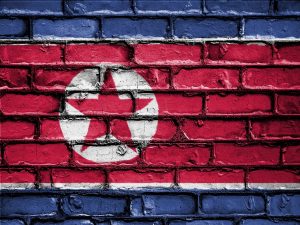Countries worldwide are trying their best to contain the outbreak of the new coronavirus. North Korea, one of the most isolated countries in the world, is no exception.
Usually, North Korea stays quiet in the face of an epidemic. Whatever measures it takes in response are rarely publicized.
The latest outbreak of the African Swine Fever virus was a good example. Amid news reports suggesting that almost all countries in East Asia were being affected by the virus, with huge consequences for swine herds, North Korea remained silent about its domestic situation. It did report some damages to the World Organization for Animal Health, but there have been no follow-up reports to the veterinary body and scant coverage of the event in state media.
Admitting the fact that authorities are struggling to contain the spread of a virus and revealing the scale of the damage to its people and the world could be a huge embarrassment for the country, where leader Kim Jong Un is held up as a godlike figure by the official media.
This time, however, appears to be a bit different. Pyongyang is not reluctant to talk about the coronavirus openly before its citizens and the global community.
The latest big news was the North’s decision to control the border. Pyongyang reportedly decided to impose a one-month quarantine and medical observation period on newly-arriving foreigners to prevent the spread of the new coronavirus.
The Russian Embassy in Pyongyang said on its Facebook account that the North’s Foreign Ministry had sent a letter to inform it of the quarantine requirements. According to the embassy, all foreigners, including foreign officials and international representatives registered in the North, travelling from China or Russia will be quarantined at a specially designated facility for one month for medical observation.
North Korea also said that international-class hotels near the customs office will be used as isolation facilities for these people, listing the specific names of hotels to be used in an unprecedented move.
The country has canceled flights between Pyongyang and Beijing, banned Chinese tourists from entering the North, and temporarily banned foreigners from traveling to China.
Its efforts are not limited to controlling foreigners. State media outlets are also ramping up their coverage to publicize ways to prevent the virus, check for symptoms, and obtain treatment.
The state-run Korean Central Television quoted health and welfare experts as saying that the new coronavirus, which originated in Wuhan, China, has completely different characteristics from previous viruses. KCTV reported the disease as causing respiratory complications, including pneumonia, and possibly resulting in kidney failure and death.
It urged viewers to make it a habit to wear a mask, wash hands often, and sterilize objects that often come in contact with hands. The report also warned that meat should not be eaten raw and poultry, eggs, milk, and other food must be boiled before ingestion.
“To prevent the disease in advance, it is most important to strengthen sanitary inspection projects at borders, ports, airfields, and train stations to take thorough quarantine measures to prevent the disease from entering the country,” the broadcaster noted.
Furthermore, the party newspaper Rodong Sinmun said on January 30 that the North had taken “emergency measures” to prevent the disease from entering the country. The government will conduct infection tests for those who go on business trips to China and closely inspect imported materials.
The paper said the government will also form local headquarters and dispatch necessary officials to rural provinces and cities to help with the early detection of suspected cases, isolation treatment, diagnostic reagents, and preparation for drugs.
Poor medical conditions and lack of relevant infrastructure are huge motivations for Pyongyang to be eager to stop the coronavirus from entering and spreading in the country.
According to a study by South Korea’s Korea Institute for Health and Social Affairs in July last year, the one of the most urgent areas of medical support the North needed was prevention and management measures for pandemics.
The institute pointed out that North Korea does not even have mandatory vaccinations for infants and children due to a lack of medicines. Health and medical infrastructure is significantly lacking outside of Pyongyang. A lack of electricity supply and drug distribution channels were also cited as factors worsening the medical services in the country.
North Korean authorities seem to be well aware of the situation. According to Seoul-based online newspaper Daily NK, the North is holding public lectures to educate citizens on preventative measures. Part of the lecture is to inform people that there is “no cure” for the virus, and the country is not ready to treat patients.

































